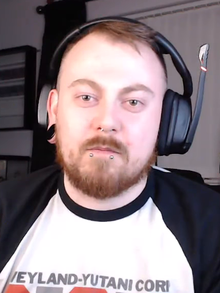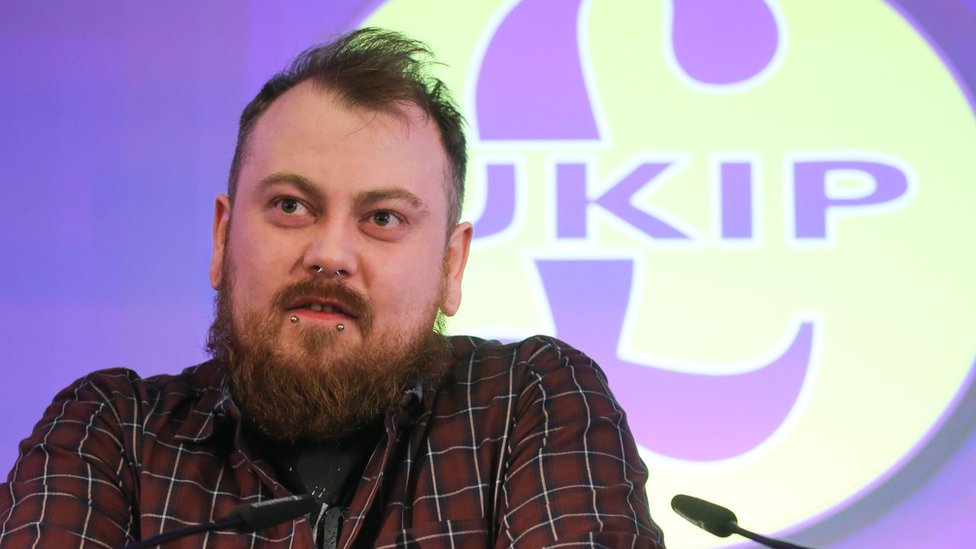The Controversial Journey of Mark Meechan: A Spotlight on Free Speech and Online Culture
In recent years, the intersection of humor, free speech, and online culture has sparked fierce debates and pushed legal boundaries. One name that has been at the forefront of this discussion is Mark Meechan. Known by many as Count Dankula, Meechan's story is a compelling case of the modern tensions between freedom of expression and offensive content on the internet. Through the tale of his infamous YouTube video and the subsequent legal battles, Meechan has become a polarizing figure, emblematic of the broader discourse surrounding the limits of comedy and expression in digital spaces.
Mark Meechan: An Introduction
Born and raised in Scotland, Mark Meechan is an online content creator, comedian, and political commentator. Meechan gained international notoriety in 2016 after posting a controversial video on YouTube that would forever alter his life and thrust him into the global spotlight. While Meechan’s channel was relatively small at the time, his content often touched on themes of free speech and controversial comedy, a common thread among various internet personalities seeking to challenge societal norms and conventions.
The Video That Sparked Outrage
In April 2016, Meechan uploaded a video featuring his girlfriend’s pug, Buddha, which he had trained to perform a particular trick. The video, intended as a humorous poke at the offensive, showcased the dog raising its paw in what resembled a Nazi salute in response to phrases such as "Sieg Heil" and "Gas the Jews." Meechan’s aim, as he initially defended, was to highlight how something innocent could be made to appear disturbing, framing it as a practical joke to annoy his girlfriend. However, the video's release was met with extensive backlash, as many viewers found the content deeply offensive and distasteful.
Legal Repercussions
The controversy surrounding Meechan’s video escalated beyond YouTube comments and media critique, resulting in legal action by Scottish authorities. In 2017, Meechan was charged under the Communications Act 2003, accused of distributing an offensive video. This marked the beginning of a highly-publicized legal case, earning widespread attention from both public and media outlets worldwide.
The case centered around whether the video constituted hate speech, thereby violating laws against inciting racial hatred. Meechan argued that his work was satire, protected under free speech, and that the intent was comedic rather than malicious. Nonetheless, in March 2018, the court found Meechan guilty of being "grossly offensive," sparking varied reactions from different segments of society.
The Global Debate on Free Speech
Meechan's conviction ignited a global debate about the boundaries of free speech and comedy, particularly on online platforms. Supporters argued that Meechan's video was a test of free expression, advocating for the importance of satire and the right to offend. They pointed out that curbing such freedom set a dangerous precedent, particularly in a digital age where expression is often fluid and subjective.
On the other hand, critics asserted that freedom of speech carries responsibilities and that Meechan's content crossed a line into hate speech, thereby justifying legal consequences. They contended that even attempts at humor should be evaluated within the context of societal impact and historical sensitivities, in this case, the extremism and immorality associated with Nazism.
Public Reaction and Influence
The public reaction was deeply divided, with the case drawing attention from a broad spectrum of commentators, comedians, and free speech advocates, including high-profile figures such as Ricky Gervais, who vocally supported Meechan's right to free expression, irrespective of taste. The case also fueled discussions on the role of context and intent in evaluating speech, as well as the role of governments in regulating online content.
Meechan’s supporters established crowdfunding campaigns to aid his legal costs, highlighting a sense of communal support among those perceiving his trial as an attack on fundamental freedoms. Conversely, anti-hate groups and individuals advocating for broader hate speech laws saw the conviction as a necessary step towards protecting minorities from harmful rhetoric.
The Aftermath: An Evolving Digital Landscape
Following his conviction, Meechan was fined £800, yet he rejected paying the fine, opting instead to continue appealing the decision. His defiance became a testament to his conviction in his beliefs about free expression and led to his increased involvement in political activism. Meechan’s story sheds light on the intricate dynamics of humor, free speech, and the responsibility of content creators in an era where online platforms serve as major arenas for public discourse.
Mark Meechan's journey from an obscure YouTuber to a symbol of the complex discussion surrounding free speech highlights the challenges and ambiguities faced by societies in the digital age. As we continue to explore the intricacies of expression and responsibility online, the case of Count Dankula remains a notable example of the ongoing evolution in how we interpret and address these critical issues.
The Rise of Count Dankula: From Content Creator to Social Commentator
Mark Meechan's legal troubles and the subsequent media frenzy not only elevated his profile but also transitioned him into a more prominent figure within the realms of social commentary and political activism. Following the trial, Meechan embraced his moniker, Count Dankula, as an emblem of his unyielding stance on free expression. This transformation illustrates how the internet can mold ordinary individuals into significant voices in social and political debates, given the right (or sometimes unfortunate) circumstances.
Online Presence and Engagement
In the wake of the controversy, Meechan's online presence expanded beyond YouTube, with increased activity on various social media platforms. He utilized these spaces to engage with audiences, share his perspectives on free speech, and critique societal issues. This approach allowed him to cultivate a community of followers who shared his views or were intrigued by his controversial notoriety.
Count Dankula's content often delves into areas such as politics, culture, and satire, reflecting his views on contemporary issues and current events. His approach to comedy remains irreverent, often challenging political correctness and pushing boundaries. While this style continues to attract criticism for its potential insensitivity, for many, it's precisely this boldness that resonates, epitomizing a rebellion against perceived constraints on free speech.
The Impact on Legal and Political Spheres
Meechan's case didn't just ripple through public opinion—it also sparked conversations within legal and political spheres. In the UK, discussions about the balance between protecting individuals from harm and preserving freedom of expression were reignited. It prompted some lawmakers and advocacy groups to call for reviews of existing laws pertaining to online speech, advocating for clearer guidelines that distinguish between harmful communication and satire or criticism.
The dialogues emerging from Meechan’s trial also mirrored global concerns regarding the governance of digital platforms—a topic at the forefront of internet legislation discussions. Many argue that the case underscores the challenges authorities face in policing a borderless online environment, where speech is shared and interpreted across diverse cultural contexts.
In addition, Count Dankula's legal journey provided a tangible example for free speech lawyers and activists worldwide, becoming a reference point in debates around the legal protection of controversial speech. This influence has seen his situation cited in discussions at international forums examining digital rights and internet regulations.
From Comedy to Political Engagement
While initially propelled into prominence through comedy, Meechan has increasingly intertwined his content with political themes. His experiences have informed his perspectives on governance, leading to deeper engagement in political discourse. In 2019, Count Dankula made headlines once again by running for the European Parliament as a candidate for the Scottish Libertarian Party. Although he did not win a seat, the venture demonstrated his commitment to promoting libertarian principles, such as individual freedoms and reduced government intervention.
This political foray mirrors a broader trend where internet personalities leverage their platforms for political engagement, thus blurring lines between entertainment and political activism. Meechan's candidacy also highlighted the role of digital media in shaping contemporary political campaigns, enabling candidates with unconventional backgrounds to reach audiences traditionally inaccessible through mainstream channels.
Challenges and Criticisms
Despite his growing influence, Meechan's journey has not been without its challenges. The notoriety that accompanied his legal battle brought increased scrutiny and criticism. Critics argue that his content often borders on inciting or trivializing hate, posing ethical concerns for platforms hosting such material. These criticisms are part of broader conversations regarding the responsibilities of social media companies to moderate content and the efficacy of their policies in combating hate speech while respecting freedom of expression.
Additionally, navigating public life as a polarizing figure presents personal challenges. Community and familial relationships can be strained, and privacy concerns intensify as one's online and offline personas merge. These realities illustrate the complexities faced by digital creators in maintaining personal and professional boundaries amid increasing demands from both supporters and detractors.
Conclusion: Reflection and Future Implications
The saga of Mark Meechan, or Count Dankula, serves as a fascinating case study in the evolution of digital culture, free expression, and the societal impacts of viral content. His story underscores the influential power of internet platforms in shaping public discourse, highlighting both the potential and dangers inherent in rapid, widespread dissemination of information.
As digital spaces continue to evolve, the discussions initiated by Meechan's experiences will remain pertinent. The case provokes a reexamination of the laws governing online speech, presses for clarity on the distinction between offensive and harmful content, and challenges society to consider the true essence of humor in a multicultural, interconnected world.
Looking forward, the narrative of Count Dankula prompts ongoing dialogue about the responsibilities tied to free speech and the critical balance between individual freedoms and collective societal good. As societies strive to adapt to the digital age's demands, the lessons from Count Dankula’s journey will undoubtedly feed into the evolving conversation on how best to manage the freedoms and challenges presented by the internet.
The Broader Implications for Digital Platforms and Content Moderation
Mark Meechan’s journey, encapsulated by his persona Count Dankula, extends beyond the narrative of a single content creator. It touches on broader, more intricate discussions relevant to digital platforms and their roles as facilitators of global dialogue. As internet use has grown, so have the complexities of maintaining environments that are open and inclusive yet protected against harmful content. Meechan's case illuminates the multifaceted challenges faced by these platforms in moderating content across diverse cultures and legal frameworks.
Complexities of Content Moderation
One of the key complexities lies in content moderation—the ability of platforms to strike a balance between user freedom and community protection. Given the vast amount of user-generated content, platforms like YouTube, Twitter, and Facebook employ automated systems and human reviewers to enforce their guidelines. However, as Meechan’s case shows, distinguishing between satire or offensive humor and genuine hate speech is not always straightforward.
Platforms are often criticized for either too stringent or too lenient approaches. Instances like Count Dankula's underscore the necessity for transparent and fair content moderation policies that consider context, intent, and broader societal impacts. They also highlight the pressing need for platforms to constantly adapt to evolving societal norms, which can differ drastically across global user bases.
In Meechan’s situation, the video’s removal and the resulting legal attention catalyzed discussion about acting on potentially harmful content versus preserving the right to freedom of speech. The difficulty lies in the subjective nature of content interpretation, making it challenging for platforms to navigate these grey areas without alienating some users or risking complicity in harmful behavior.
Emerging Trends in Digital Governance
Meechan's story plays into ongoing discussions around digital governance, where governments and international bodies strive to establish frameworks for regulating online content. The incident illustrates the national and international pressures placed on platforms to regulate content effectively while respecting individual rights to expression.
Governments around the world are increasingly enacting laws aimed at holding platforms accountable for content, urging them to remove illegal and harmful materials promptly. However, these measures often raise concerns about overreach and censorship, exemplified in debates following the Count Dankula case. Critics argue that such regulations might encroach on personal freedoms, potentially stifling legitimate discourse under the guise of removing offensive content.
This global conversation has prompted some countries to explore innovative governance approaches, such as statutory codes of conduct for platforms or cooperative governance models involving multiple stakeholders, including civil society and tech companies. Such initiatives aim to balance free expression rights with protections against harmful material, though they face significant challenges in implementation.
Lessons for Content Creators
For content creators like Mark Meechan, navigating this landscape requires an awareness of the potential impacts of their work. The internet’s reach means that content can easily transcend its intended audience, influencing perceptions and sparking wider societal debates. As such, creators have a role in considering not only the comedic or artistic value of their work but also its ethical and social implications.
Creators are now finding themselves at the crossroads of creativity and responsibility, where pushing boundaries must be balanced with an understanding of the possible repercussions from both audiences and legal systems. Meechan’s journey is a testament to the heightened scrutiny that content can invite, highlighting the importance of context and the nuances of digital expression.
The Evolving Role of Comedy in Cultural Discourse
Comedy has long been a lens through which society examines itself, with satire often leading societal critique. The controversy surrounding Count Dankula's content invites reflection on comedy’s evolving role within cultural discourse, especially concerning sensitive topics. As the lines drawn between humor and offense evolve, comedians and content creators face the challenge of adapting their work to an audience that is both globally diverse and increasingly vocal.
Mark Meechan’s situation underscores comedy’s dual potential to entertain and offend, provoking discussions about how societal norms around humor are shifting. Satirical content that challenges accepted beliefs is becoming a crucial part of dialogues on political correctness and cultural sensitivity, with comedians at the forefront of these debates.
Moving forward, comedians, critics, and audiences must collectively explore these boundaries to reconcile humor with respect for differing perspectives and experiences. This conversation remains critical to fostering a digital culture that supports both free expression and respectful engagement.
Reflection on the Future of Free Speech and Digital Expression
As the digital landscape continues to expand, the future of free speech and digital expression will likely be shaped by ongoing dialogues similar to those sparked by Mark Meechan. His story offers a window into the complexities of articulating and defending free speech rights in an increasingly interconnected world.
Navigating these challenges requires nuanced understanding and collaboration between platforms, legal systems, and civil society. Society's collective task is to delineate acceptable boundaries for speech that safeguard individual freedoms while protecting communities from genuine harm.
Mark Meechan's journey, marked by controversy and conversation, remains a vital consideration in the ongoing evolution of global digital culture. As we continue to explore the potential and pitfalls of online discourse, the debates his case incited serve as foundational discussions in shaping the balance between liberty and responsibility in the digital age.








Comments